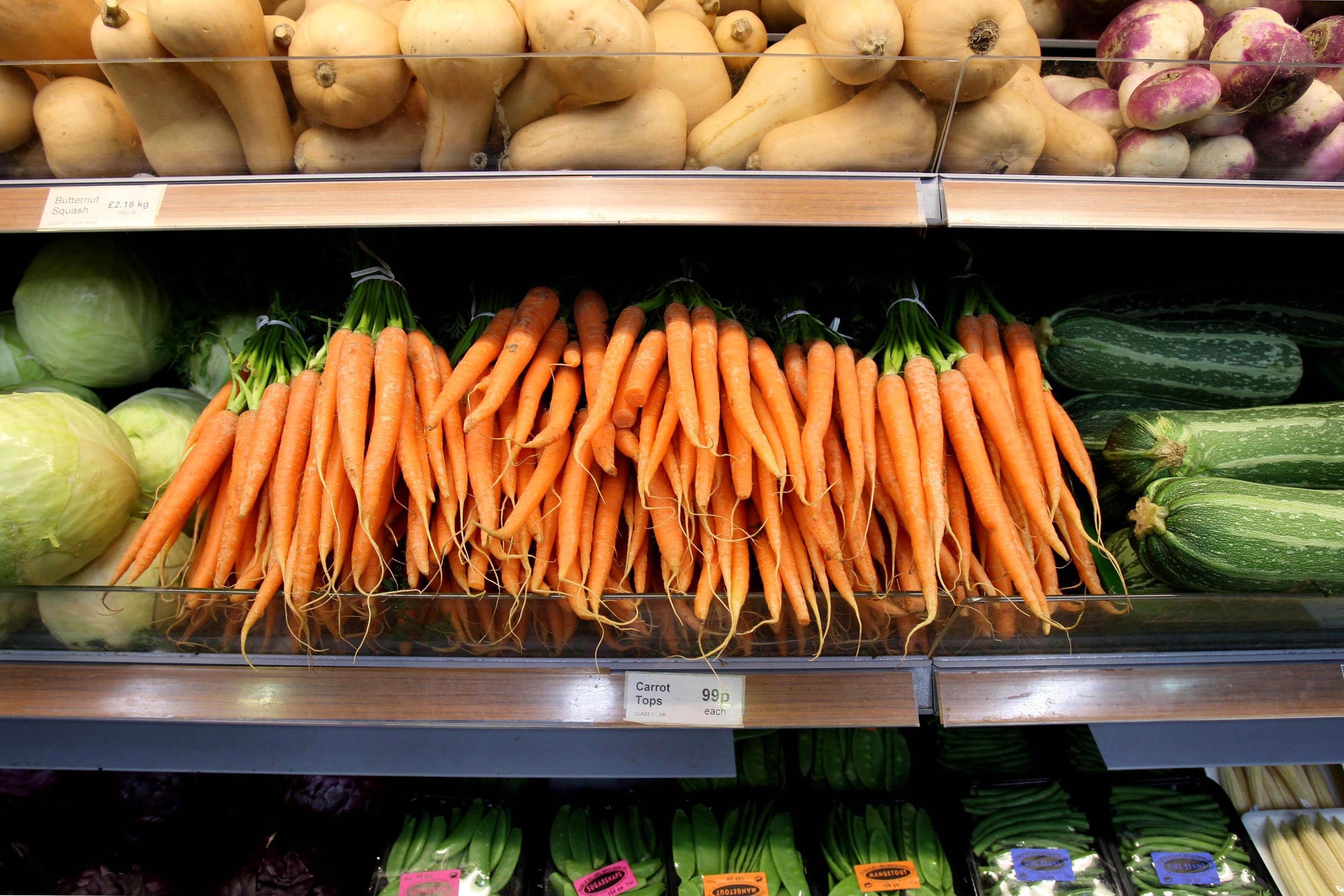Scientists reveal the secret to stop cut carrots from curling
The findings could also help reduce food waste, according to researchers from the University of Bath.

Your support helps us to tell the story
From reproductive rights to climate change to Big Tech, The Independent is on the ground when the story is developing. Whether it's investigating the financials of Elon Musk's pro-Trump PAC or producing our latest documentary, 'The A Word', which shines a light on the American women fighting for reproductive rights, we know how important it is to parse out the facts from the messaging.
At such a critical moment in US history, we need reporters on the ground. Your donation allows us to keep sending journalists to speak to both sides of the story.
The Independent is trusted by Americans across the entire political spectrum. And unlike many other quality news outlets, we choose not to lock Americans out of our reporting and analysis with paywalls. We believe quality journalism should be available to everyone, paid for by those who can afford it.
Your support makes all the difference.Scientists believe they may have found the answer to why cut carrots curl if left uneaten for too long.
Researchers from the University of Bath have discovered that when this root veg is cut lengthwise and left exposed to air for a long time, it can start to lose moisture.
This causes the outer layer of the carrot – known as the cortex – to dry out faster than the centre, making it bend outwards.
The team said that handling carrots in a cold, moist, and airtight environment can “protect their natural properties and increase their edible life span”.
Dr Elise Pegg, a senior lecturer in the University of Bath’s Department of Mechanical Engineering – who oversaw the study, said: “We have mathematically represented the curl of a cut carrot over time, and showed the factors that contribute to curling.
“Our motivation was to look for ways to improve the sustainability of carrot processing and make them as long-lasting as possible.”
She said the team’s work, published in the journal Royal Society Open Science, gives food producers a new tool that could potentially help them reduce not just carrot wastage but other root veg as well.
The research was carried out during lockdown by Nguyen Vo-Bui, a mechanical engineering student at the University of Bath.
He used mathematical models from structural engineering to analyse more than a hundred Lancashire Nantes carrot halves.
Over the course of a week, the researchers found that the carrot halves gradually kept curling outwards – and the average radius of each carrot’s curvature dropped from 1.61m to 1.1m.
The weight of the carrots also fell by 22%, they said.
Mr Nguyen added: “This was interesting research – to apply mechanical principles to vegetables was surprising and fun.
“One of the big challenges was to devise an experiment that could be done in a lockdown setting, without access to normal labs and equipment.”
The researchers said that around 25-30% of carrots are often wasted before being processed or packaged due to deformities, mechanical damage or infected sections.
Dr Pegg said: “We have produced a methodology that a food producer could use to change their processes, reducing food waste and making packaging and transportation more efficient.”
Mr Nguyen said once the experiments were finished, the carrots were then used to make dishes such as carrot cake, the Indian carrot dessert Gajar Ka Halwa as well as carrot pesto.